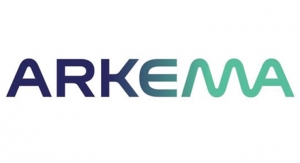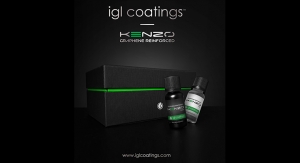08.19.21
Applied Graphene Materials has launched a new range of eco-friendly graphene nanoplatelet dispersions that will enable paints, coatings and composite materials customers to improve the sustainability of their product formulations in response to growing market pressures.
Materials suppliers are investing in bio-based innovation as customers and their end consumers become increasingly aware of the safety and environmental impact of the raw materials they use. Growing pressure to comply with stringent health and safety legislation and demonstrate a reduced environmental impact is forcing manufacturers to progressively introduce bio-derived alternatives to traditional chemicals.
All ten of the top ten coatings companies by global sales now offer eco-friendly products with low-VOC emissions, and the reduction or replacement of traditional solvents is now a high priority.
AGM’s Genable 1700 series of eco-friendly graphene nanoplatelet dispersions are based on the company’s graphene dispersion technology, which delivers significant performance uplifts such as chemical resistance, barrier and anticorrosion properties. Genable graphene dispersions are integrated with a selection of certified, fully bio-based solvents and resins available in the market.
The Genable 1700 series product range is now available for sampling evaluation by customers for use in a wide range of liquid coatings and composite materials formulating applications.
AGM’s focus on continued innovation and the development of sustainable products will ensure the Company not only continues to meet the qualifying criteria and purchasing requirements of current and future customers, but will also remain essential to their sustainable supply chains in the future.
The launch of this new sustainable range for customers reflects AGM’s own sustainability commitment to continuous improvement to align with the principles of the UN Sustainability Development Goals.
“AGM is committed to being part of a sustainable supply chain,” AGM CEO Adrian Potts said. “We believe that through our constant product innovation we can empower our customers to not only set new product performance standards, but new sustainability standards for their industries.”
Materials suppliers are investing in bio-based innovation as customers and their end consumers become increasingly aware of the safety and environmental impact of the raw materials they use. Growing pressure to comply with stringent health and safety legislation and demonstrate a reduced environmental impact is forcing manufacturers to progressively introduce bio-derived alternatives to traditional chemicals.
All ten of the top ten coatings companies by global sales now offer eco-friendly products with low-VOC emissions, and the reduction or replacement of traditional solvents is now a high priority.
AGM’s Genable 1700 series of eco-friendly graphene nanoplatelet dispersions are based on the company’s graphene dispersion technology, which delivers significant performance uplifts such as chemical resistance, barrier and anticorrosion properties. Genable graphene dispersions are integrated with a selection of certified, fully bio-based solvents and resins available in the market.
The Genable 1700 series product range is now available for sampling evaluation by customers for use in a wide range of liquid coatings and composite materials formulating applications.
AGM’s focus on continued innovation and the development of sustainable products will ensure the Company not only continues to meet the qualifying criteria and purchasing requirements of current and future customers, but will also remain essential to their sustainable supply chains in the future.
The launch of this new sustainable range for customers reflects AGM’s own sustainability commitment to continuous improvement to align with the principles of the UN Sustainability Development Goals.
“AGM is committed to being part of a sustainable supply chain,” AGM CEO Adrian Potts said. “We believe that through our constant product innovation we can empower our customers to not only set new product performance standards, but new sustainability standards for their industries.”
























